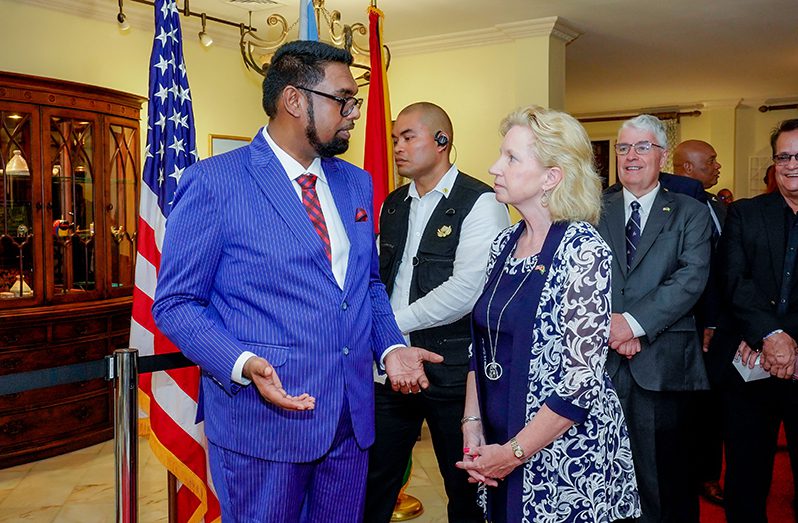As Guyana continues efforts to build out a robust regulatory and legislative framework for the oil industry, it would also be wise to keep its eyes on policies and programmes that target inclusionary growth. United States Ambassador to Guyana, Sarah Ann-Lynch made this point during a recent discussion hosted by Plaza Central (a podcast from the Wilson Center’s Latin American Programme).
The envoy agreed that Guyana is on a remarkable trajectory as it is poised to register an almost 60% growth rate on account of the oil industry. She recalled that the International Monetary Fund (IMF) projected that the new oil producer will see about 30% growth from 2023 onward. While Guyana is set on an enviable pathway, she said the road ahead will have its fair share of challenges, two of which she opined to be achieving inclusion and guarding against the potential for corruption.
The Ambassador said, “In many countries across the globe that have gone from abject poverty, if you will, to incredible wealth overnight, it is tough to do it well. So, they (Guyanese authorities) will have to keep their eye on the ball. There are many models on what not to do and they are truly educating themselves in those areas.”
One needs to bear in mind, Lynch said, that Guyana is an ethnically diverse society. She said it would be prudent for the government to pay careful attention to programmes that ensure all citizens feel touched by the impending oil wealth. She noted that the government has already started several efforts in this regard and urged that this be done at an increased pace.
She noted the government has provided several cash grants to marginalised groups affected by COVID-19, flooding, and the downturn in the economy. While this is commendable, she said these short-term grants do not guarantee sustainability.
It is on this premise the envoy commented that the US, as a critical development partner and ally, is encouraging Guyanese authorities to focus on efforts that will create sustainable growth for the entire country, regardless of ethnicity, gender, or geography.
She said, “…We are therefore encouraging them to ensure the hinterland communities also benefit (from the nation’s oil wealth).”
Guyana is projected to rake in multi-billion-dollar profits from its four sanctioned projects in the Stabroek block. From these projects alone, the government expects billions of US dollars in annual revenues.



